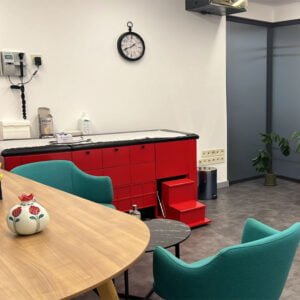Drug Allergy Treatment
- Home
- Drug Allergy Treatment

All Inclusive Package Details
5 Star Accommodation
Transfer Services
Hospital
Expert Allergy Doctors
Why Should You Choose Us?
Founded in 2022, CURExplore is a service provider that brings together guests from abroad through medical staff and translators who can speak their own language.
CURExplore, which organizes international patients from all over the world, mostly from Europe to Turkey, is an Istanbul-based health tourism intermediary company that is a member of TURSAB (Association of Turkish Travel Agencies) with the code 14076 and has the Ministry of Health Accreditation.
30-minute free consultation.
After free online consultation, we determine your needs and plan your operation free of charge.
No Surprise Costs
We will not charge you any additional fees.
All Inclusive Packages
5-Star Accommodation, Transfer, Post-Operative Care at the Hotel, Translator, All Processes with You
Fill Out the Form and Get a Personalized Quote
Address
Küçükbakkalköy neighborhood. Merdivenköy Yolu neighborhood. No:12/1 Ataşehir / İstanbulContact Form
Frequently Asked Questions on Drug Allergy Treatment
A drug allergy is an unexpected and extreme immune response of the body to certain medicines. These reactions usually do not occur after the first use of the medication, but after the body recognizes the medication, i.e. on the second or later use.
Symptoms of drug allergy can vary from person to person. They can range from mild symptoms, such as itching and redness of the skin, to more serious reactions. In some cases, severe allergic reactions can lead to anaphylaxis, which can cause life-threatening symptoms such as difficulty breathing, severe rashes, rapid pulse and low blood pressure.
Allergies to some medicines are more common. For example, penicillin and some antibiotics can cause common allergic reactions. If a drug allergy is suspected, it is important to consult a doctor and, if necessary, have allergy tests. Based on the results of the allergy test, the doctor can determine which medicines can be used safely and, if you are allergic, recommend alternative medicines.
Symptoms of a drug allergy usually appear shortly after taking the medicine and can vary. The most common symptoms include redness, itching and rashes on the skin. These rashes are usually mild and uncomfortable, but can sometimes develop into more serious skin reactions. Other signs of a drug allergy can include flu-like symptoms such as fever, joint pain and swelling. In more severe cases, allergic reactions can lead to signs of anaphylaxis, such as shortness of breath, wheezing, swelling of the face, lips, tongue or throat. Such severe reactions are serious conditions that require immediate medical attention and can include life-threatening conditions such as difficulty breathing, loss of consciousness or even shock.
Every case of drug allergy is different and sometimes symptoms may not appear immediately; in some cases, symptoms may develop days or weeks after taking the medication. If a drug allergy is suspected, the safest course of action is to contact a health professional as soon as symptoms are recognized. Self-diagnosis and treatment can be risky, especially when it comes to drug allergies. It is therefore important to seek professional medical help whenever you show any signs of allergy.
Drug allergies are actually a result of our body's overprotective behavior. Normally, our body's immune system is designed to recognize and fight harmful bacteria and viruses, but sometimes it can mistake a harmless drug for a dangerous substance. In case of this false alarm, the immune system starts to produce antibodies against the drug and these antibodies trigger an allergic reaction when the same drug is encountered in the future.
So, what could be the triggers of this false alarm? This is where genetic factors come into play. If you have a family history of drug allergy, you are more likely to be prone to drug allergy. Also, some medications, especially antibiotics and some painkillers, are more prone to allergic reactions. These medicines can mislead and activate certain cells in our immune system.
Sometimes, allergic reactions are not caused by the actual medicine, but by excipients in the medicine. This is why some people may develop an allergy to one medication but not to another brand of medication with the same active ingredient. In conclusion, the causes of drug allergy are complex and personal. Everyone's body can react differently and some people may be more sensitive to certain medicines.
When diagnosing a drug allergy, your doctor will first have a detailed conversation with you. By asking questions such as "When did these symptoms start?" and "What medications have you been taking?", he or she will try to understand the potential triggers of your allergic reaction. At this stage, it is important to share your family medical history and previous allergy cases, if any. Because sometimes drug allergies can run in families, so if you have a family history of drug allergy, you are more likely to be at risk.
Your doctor will carry out a detailed assessment of your symptoms and try to determine whether they are caused by a health condition other than a drug allergy. Allergy tests can also be part of the diagnostic process. These tests involve applying very small amounts of potential allergens to your skin and observing how your skin reacts to these substances. However, not all medicines can be skin-tested and sometimes allergy tests may be inadequate.
Sometimes, to diagnose a drug allergy, small doses of a drug may need to be given in a controlled environment, called a "drug provocation test". This test is only done under the supervision of a doctor and under conditions where an immediate reaction can be treated.
Remember, the diagnosis and treatment of drug allergy is highly individualized and should always be under the guidance of a health professional. If you suspect a drug allergy, please consult a healthcare professional and avoid self-diagnosis or self-treatment. The right diagnosis will lead to the right treatment and help you maintain your health.
Treatment for a drug allergy starts with immediately stopping the use of the drug that is causing the allergy in the first place. In other words, as soon as you think that this medicine is not good for me, the first thing you should do is put it aside and contact your doctor. Your doctor will create a treatment plan according to the severity and symptoms of your allergy. If the allergy is mild, medicines such as antihistamines may be prescribed. These can relieve symptoms such as itching and redness by reducing the effects of histamine, which triggers the allergic reaction.
For more severe allergic reactions, medicines such as corticosteroids may be used. These medicines help to reduce the severity and duration of allergic reactions by reducing inflammation. In severe cases, especially life-threatening ones such as anaphylaxis, emergency medical intervention may be needed. In this case, rapid intervention, such as an injection of adrenaline, can be life-saving.
Finding alternatives to the medicine causing the allergy is also part of the treatment. Your doctor may recommend other medicines that are safe for you. Also, to avoid similar allergic reactions in the future, it is important to know which medicines you are allergic to and to carry this information with you at all times. This can be especially vital in an emergency or when seeing a new doctor.


























